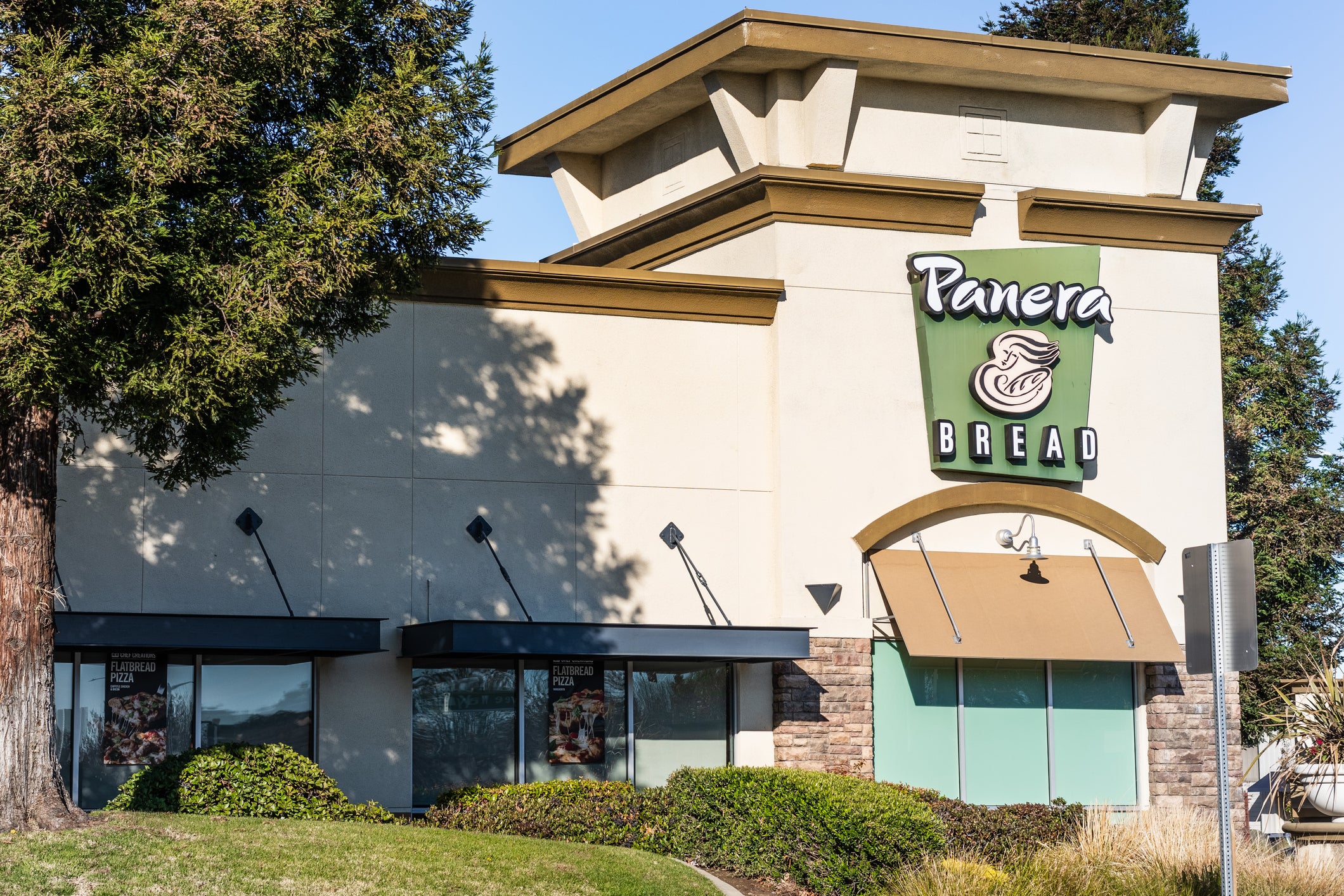Panera faces second lawsuit over death linked to Charged Lemonade
Charged Lemonade contains more caffeine than cans of Red Bull and Monster Energy combined
Panera Bread is facing a second lawsuit after its highly caffeinated Charged Lemonade was linked to a second death.
According to a wrongful death lawsuit filed on Monday, Dennis Brown, of Fleming Island, Florida, suffered a cardiac arrest after drinking three Charged Lemonades from a local Panera on 9 October.
The lawsuit added that the 46-year-old had an unspecified chromosomal deficiency disorder, a developmental delay and a mild intellectual disability and stopped frequently at Panera after his shifts at a supermarket.
He did not consume energy drinks due to high blood pressure, the lawsuit said.
The legal complaint, filed on behalf of Mr Brown’s mother, sister and brother, comes less than two months after Panera was hit with a separate lawsuit for its Charged Lemonade.
The first lawsuit was filed by the parents of Ivy League student Sarah Katz, 21, who went into cardiac arrest in September 2022 hours after buying Charged Lemonade, which contains more caffeine than cans of Red Bull and Monster Energy combined, plus the equivalent of nearly 30 teaspoons of sugar, according to the lawsuit.

Lawyers for her parents said in court papers filed in the Philadelphia Court of Common Pleas that Ms Katz had a heart condition – long QT syndrome type 1 – and avoided energy drinks at the advice of doctors.
The lawsuit described Charged Lemonade as a “dangerous energy drink” and argued that Panera failed to appropriately warn consumers about its ingredients.
Charged Lemonade contains 390 milligrams of caffeine. Panera advertises the drink as “Plant-based and Clean with as much caffeine as our Dark Roast coffee,” but the lawsuits allege a large, 30-fluid-ounce Charged Lemonade has more caffeine in total than any size of Panera’s dark roast coffee.

The Food and Drug Administration says healthy adults can safely consume 400 milligrams of caffeine a day.
It is unclear if Mr Brown knew how much caffeine was in the drink, which at the time of his death was available in self-serve dispensers and “offered side-by-side with all of the store’s non-caffeinated and/or less caffeinated drinks,” the suit says.
His cause of death was recorded as cardiac arrest due to hypertensive disease, according to a death certificate obtained by NBC News.
Following his death, the Brown family’s lawyer described him as a “vital member” of his family who “always made everyone smile.”
They added that his family was filing the lawsuit to “prevent this from happening to another Dennis.”
“This is a vulnerable population that I think the community at large should help protect. And I feel like Panera failed to do that for Dennis,” the attorney said.
Panera said that it stood by the safety of its products and expressed “deep sympathy for Mr Brown’s family”.

“Based on our investigation we believe his unfortunate passing was not caused by one of the company’s products,” it said in a statement. “We view this lawsuit, which was filed by the same law firm as a previous claim, to be equally without merit. Panera stands firmly by the safety of our products.”
Following Ms Katz’s death, Panera put more detailed disclosures in all of its restaurants and on its website warning customers to consume the Charged Lemonade in moderation, stating that it is not recommended for children, people sensitive to caffeine or pregnant or nursing women.
The Independent has contacted Panera Bread for comment.
Join our commenting forum
Join thought-provoking conversations, follow other Independent readers and see their replies
Comments
Bookmark popover
Removed from bookmarks